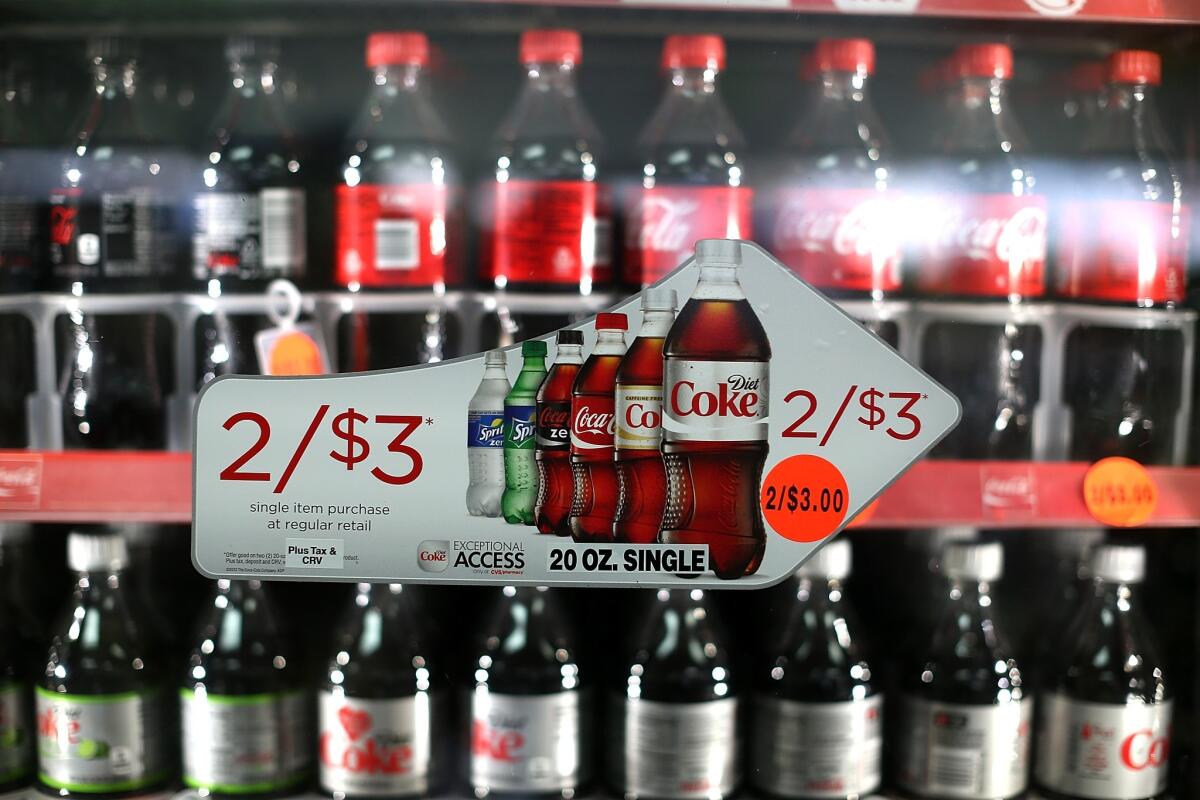Opinion: San Francisco vs. Berkeley: Who’s got the better soda tax proposal?

- Share via
The San Francisco Board of Supervisors is expected to vote Tuesday to put a 2-cents-per-ounce soda tax on the November ballot. Actually, the measure would tax a list of sugary beverages, including energy drinks, sweetened ice tea, juices that are not 100% natural fruit or vegetable juice, as well as concentrates and powders (That includes you, Kool-Aid.)
The tax would be levied on the distributors, such as grocery stores, but the cost would probably be passed on to consumers, who would theoretically reduce their consumption of calorie-laden drinks.
Across the bay, the city of Berkeley has put a similar soda tax on the November ballot; it calls for a one-cent-per-ounce charge on sweetened beverages. But there is another important difference between the two cities’ ballot measures, and it’s the reason San Francisco’s proposal is better than Berkeley’s.
San Francisco would use the money generated by the tax — an estimated $35 million to $54 million a year — for nutrition and physical education at schools, recreation centers and athletic programs, and to install more water fountains around the city. The purpose of the tax, proponents say, is to make San Francisco healthier, and the spending plan supports that.
Berkeley’s new tax revenue — about $1.5 million a year — would go into its general fund, which pays for basic city services and programs. The Berkeley measure calls for the creation of a Sugar-Sweetened Beverage Product Panel of Experts to recommend if and how the city should spend the money on programs to reduce soda consumption, but city leaders are free to spend the money however they choose. Certainly, Berkeley leaders today may be committed to using the revenue for community and school nutrition programs, but there’s nothing binding future officials to do the same.
Voters in San Francisco will know definitively on election day what they’re going to get in exchange for their soda tax. Voters in Berkeley will not.
Now, Berkeley probably chose to go the undefined route because a general fund tax can pass on a simple majority vote and therefore has a better chance of success. San Francisco’s spell-it-out approach to its tax will require approval of two-thirds of voters. That, of course, makes San Francisco’s measure more difficult to pass and more at risk of being torpedoed by an aggressive and expensive campaign by the beverage industry.
But a soda tax is ultimately a “sin tax,” and a sin tax is more acceptable when the money is going to reduce the impact of the sin. San Francisco’s ballot measure clearly does that; Berkeley’s does not.
For more opinions, follow me @kerrycavan
More to Read
A cure for the common opinion
Get thought-provoking perspectives with our weekly newsletter.
You may occasionally receive promotional content from the Los Angeles Times.










